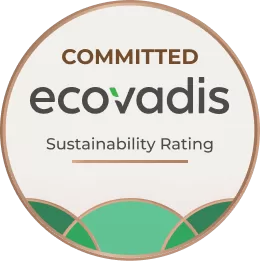Sustainability at Safemark: Building a Greener Future Together
At Safemark, sustainability is more than just a buzzword—it’s a core principle that drives our innovation, operations, and partnerships. As a leading provider of secure storage and technology solutions for the hospitality industry, we recognize our responsibility to minimize environmental impact while maximizing efficiency and customer satisfaction. Through eco-conscious design, responsible sourcing, and long-term environmental initiatives, Safemark is paving the way toward a more sustainable future.
Our Commitment to Environmental Responsibility
We are committed to reducing our ecological footprint across every stage of our product lifecycle. From concept to customer, each product is developed with sustainability in mind. Our environmental responsibility starts at the design level, where we prioritize energy efficiency, material durability, and minimal waste generation. This philosophy ensures our products last longer, consume fewer resources, and deliver maximum value.
Sustainable Manufacturing Practices
Our manufacturing processes are continually evolving to meet and exceed environmental standards. Safemark facilities implement lean manufacturing principles that reduce waste, water use, and emissions. We work closely with suppliers who share our values—prioritizing ethical sourcing and using recyclable or renewable materials whenever possible.
- Reducing material waste through precise design and production techniques
- Incorporating recycled metals and plastics into product components
- Utilizing water-based adhesives and low-VOC finishes
- Optimizing energy usage in our production lines
Eco-Friendly Materials and Packaging
Safemark is committed to eco-friendly packaging solutions that minimize landfill waste. We’ve significantly reduced our reliance on single-use plastics and now use recyclable or biodegradable packaging materials. Whether it’s post-consumer recycled cardboard or responsibly sourced corrugated fiberboard, every packaging decision reflects our commitment to the environment.
Energy-Efficient Products
Innovation meets sustainability in the energy-efficient features of our product lines. Safemark electronic safes, charging stations, and other hospitality technology are engineered to consume less power without sacrificing functionality or reliability. For example, our digital safes include auto-lock timers and energy-saving standby modes that contribute to overall energy reduction in hotel operations.
Green Partnerships
Safemark collaborates with partners, clients, and organizations that share our vision for a cleaner, more sustainable world. These collaborations help multiply our impact and set industry-wide standards.
- Vendor agreements that prioritize eco-responsible materials
- Participation in recycling and e-waste programs
- Green-certified logistics and distribution partnerships
Reducing Our Carbon Footprint
Safemark actively works to reduce its carbon footprint through:
- Investing in renewable energy sources
- LED lighting and energy-saving HVAC in facilities
- Streamlined logistics for lower transportation emissions
- Remote work and digital collaboration initiatives
Safemark’s Sustainability Goals
We maintain measurable objectives to drive our sustainability program forward. Our current goals include:
- Increasing recycled materials use by 30% by 2026
- Reducing packaging waste by 50% over three years
- Achieving carbon neutrality in core operations by 2030
- Expanding end-of-life recycling/refurbishment programs
Why Sustainability Matters in Hospitality
With millions of guest interactions daily, hospitality brands can make a big environmental impact. Safemark helps hoteliers embrace green initiatives by offering secure, energy-efficient products that support ESG goals. Sustainable choices aren’t just good for the earth—they’re good for business too.
Join Us on the Path to a Greener Tomorrow
Whether you’re a hotel operator, procurement officer, or guest who values sustainability, Safemark offers solutions that protect your belongings and the planet. Together, we can create a cleaner, greener future—one innovation at a time.






